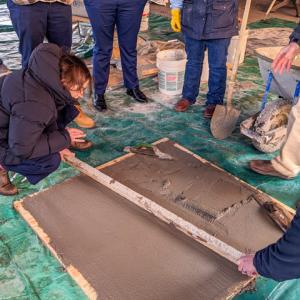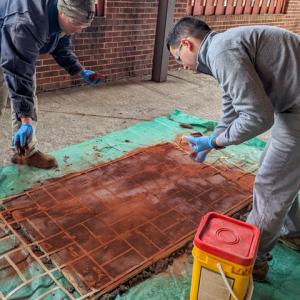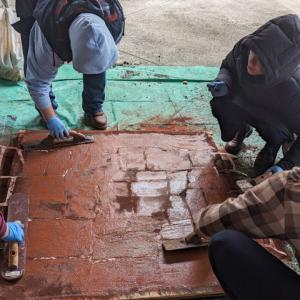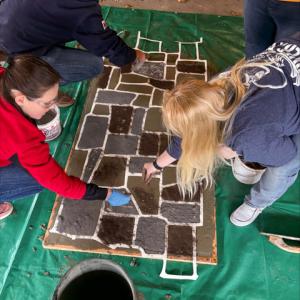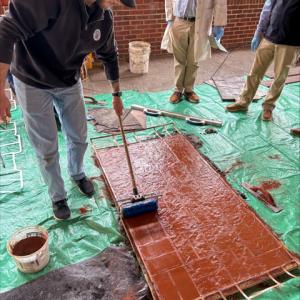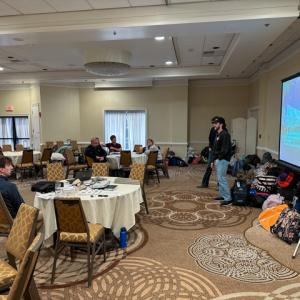Penn College faculty share concrete know-how with FFA teachers
Thursday, March 14, 2024
Photos provided
"Concrete Science and Careers,” offered in February to K-12 FFA instructors by faculty experts from Pennsylvania College of Technology, is already yielding positive impacts – including plans for a more in-depth session for the teachers later this spring.
Franklin H. Reber, instructor of building construction technology at the college, and Joe F. DiBucci, instructor of building construction technology: concrete and masonry, offered instructor workshops on three Saturdays during the Pennsylvania FFA’s “Agricultural Cooperation Establishes Success” Leadership Conference near Harrisburg.
FFA, formerly known as Future Farmers of America, is a youth organization that prepares members for leadership and careers in the science, business and technology of agriculture.
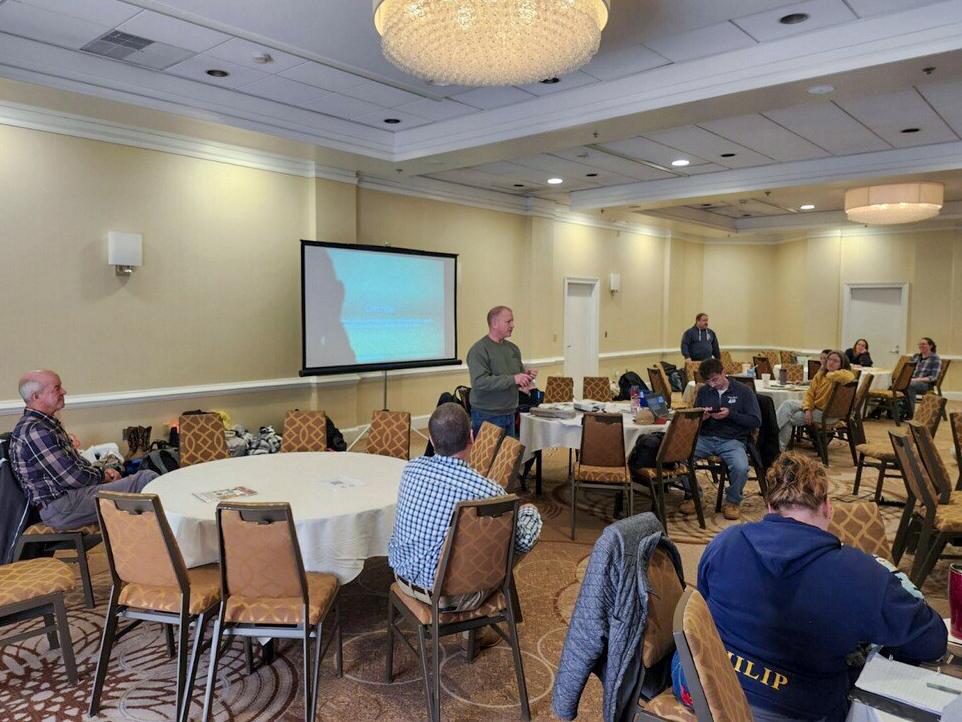
Pennsylvania College of Technology’s Franklin H. Reber, instructor of building construction technology, provides a teacher workshop on concrete science during a Pennsylvania FFA leadership conference. Concrete construction is commonly part of the curriculum for FFA agricultural education.
“The presentation was designed to: one, inform the faculty of new technologies and all the careers in the concrete industry; two, inform them about our concrete science degree at Penn College; and three, demonstrate several small activities that they could take back to their classroom for both 40-minute and 80-minute class sessions,” explained Reber, who arranged the partnership and presented on two of the three weekends.
“I am continuously awed by the faculty in concrete science,” said Ellyn A. Lester, assistant dean of construction and architectural technologies. “Frank Reber took it upon himself to reach out to the FFA and volunteered to lead multiple weekend training sessions. Likewise, Joe DiBucci always jumps in to help, and even Harry Hintz, who retired last year, will step up and help out whenever we need him. They’re not doing this for additional pay; they simply want to introduce K-12 faculty to concrete in hopes that they’ll ‘spread the word’ about the numerous career opportunities.”
The faculty were assisted by concrete science technology students Sam K. Brost, of Big Falls, New York; Trent B. Morrison, of South Williamsport; and Dawson J. Schoffstall, of Tower City; as well as Hintz, a retired instructor of building construction technology. Brost completed an associate degree in building construction technology in 2023. Schoffstall, too, is double majoring in building construction technology and concrete science technology.
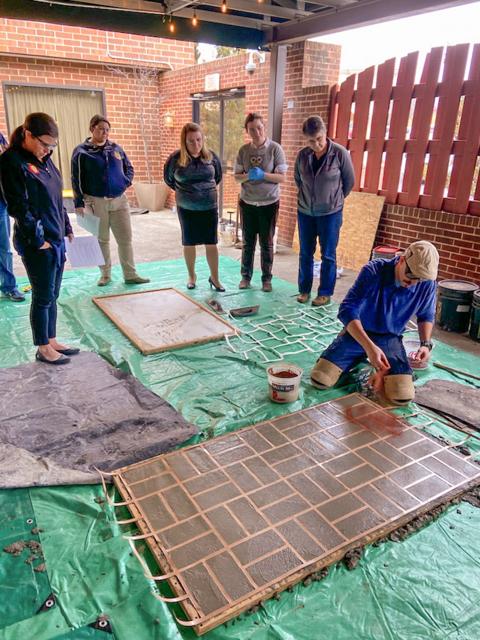
Joe F. DiBucci, instructor of building construction technology: concrete and masonry for Pennsylvania College of Technology, demonstrates for K-12 teachers how to color concrete that has been stenciled to look like brick. The Penn College faculty provided instructions for the FFA teachers to repeat the activity with their students.
The sessions included a hands-on component.
“We did a live demonstration of stenciling and stamping concrete to look like brick, stone, wood, etc.,” DiBucci said. “The point of the demonstration was to give the teachers the ability to learn about concrete in a technical application and then be able to teach it to their students, to allow the students to realize that concrete isn’t just the gray sidewalks you see all over.”
Seventy-two FFA teachers took part in the concrete workshops.
Heather Van Winkle, who teaches an agricultural production course for Central High School in Martinsburg, explained that concrete basics are part of the FFA coursework.
“I presented the Ag 3 students the slideshow provided by Frank and Joe to show them the different types of careers related to concrete and how many jobs are available,” she said. “One student in particular showed quite an interest once he found out about the diverse job fields within the concrete field.”
FFA classroom activities include math and science, as well as hands-on work experience and the development of life skills, helping members discover their career paths and realize success.
“The FFA motto is ‘learn by doing,’ and many FFA students end up in the construction field,” Reber explained.
“The hopes are for the teachers to start teaching their students about the opportunity that is involved with the concrete industry,” DiBucci added.
Due to the positive feedback from teachers attending the sessions, an in-depth workshop on concrete science will be offered to the educators in Penn College’s Concrete Science Lab this spring.
The weekend ACES conferences attracted more than 2,000 active members of Pennsylvania FFA chapters. Student participants attended sessions that emphasized agricultural advocacy and literacy, communication, time management and more.
To learn more about Penn College’s concrete science degree and other building construction majors, call 570-327-4520 or visit www.pct.edu/concrete.
For information about Penn College, a national leader in applied technology education, email the Admissions Office or call toll-free 800-367-9222.

